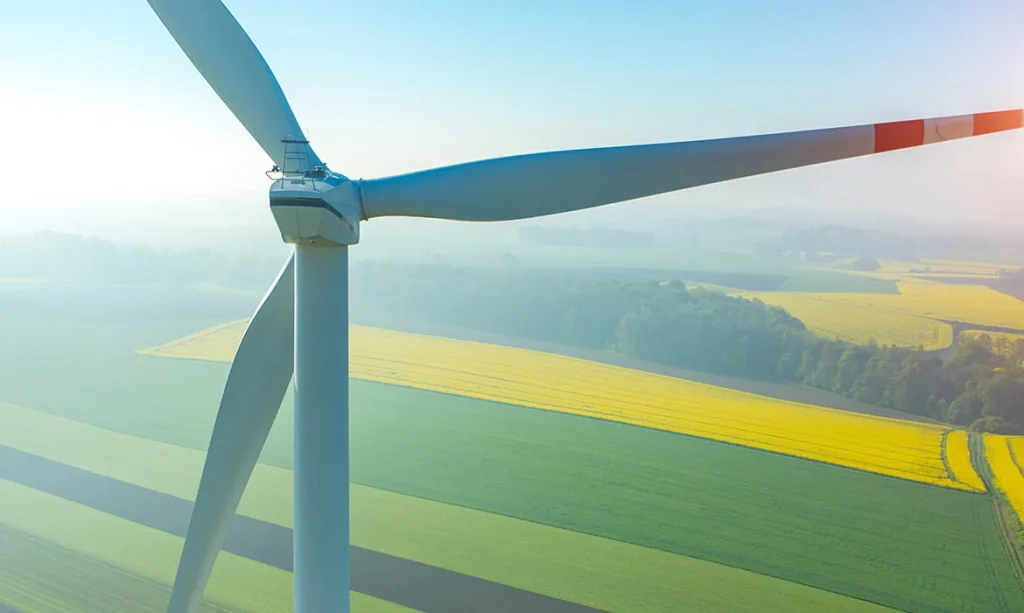
In recent years, the push towards sustainable and renewable energy sources has gained significant momentum. Among the various renewable energy options, wind energy stands out as a leading contender due to its vast potential and numerous benefits. Investing in wind energy not only contributes to environmental sustainability but also offers substantial economic advantages. This article explores the economic benefits of investing in wind energy and why it is a smart choice for businesses and governments alike.
1. Job Creation and Economic Growth
One of the most immediate economic benefits of investing in wind energy is job creation. The wind energy sector requires a diverse workforce, including roles in manufacturing, installation, maintenance, and operations. According to the American Wind Energy Association (AWEA), the wind industry in the United States alone supports over 120,000 jobs. As the demand for wind energy grows, so does the need for skilled labor, leading to increased employment opportunities and economic growth in local communities.
2. Energy Independence and Security
Investing in wind energy can significantly enhance energy independence and security. By reducing reliance on imported fossil fuels, countries can mitigate the risks associated with volatile global energy markets and geopolitical tensions. Wind energy provides a stable and predictable source of power, which can help stabilize energy prices and reduce the economic impact of energy price fluctuations. This increased energy security is especially crucial for regions heavily dependent on energy imports.
3. Long-Term Cost Savings
Wind energy offers long-term cost savings compared to traditional fossil fuel-based energy sources. Once a wind farm is established, the ongoing operational and maintenance costs are relatively low. Unlike fossil fuels, wind is a free and inexhaustible resource. As technology advances and economies of scale are achieved, the cost of wind energy continues to decrease. Many studies have shown that wind energy is now one of the most cost-competitive renewable energy sources available, often cheaper than coal or natural gas.
4. Attraction of Investment
The wind energy sector attracts significant investment from both public and private entities. Governments around the world are implementing policies and incentives to encourage investment in renewable energy projects, including wind energy. These incentives can include tax credits, grants, and subsidies that make wind energy projects more financially viable. Additionally, private investors are increasingly recognizing the long-term profitability and stability of wind energy projects, leading to increased capital inflow into the sector.
5. Revenue Generation for Landowners
Wind farms can provide a steady source of income for landowners. Farmers and landowners who lease their land for wind turbine installations receive regular lease payments, which can provide a stable and predictable revenue stream. This additional income can help support rural economies and contribute to the financial well-being of landowners, making wind energy a win-win situation for both the energy sector and the agricultural community.
6. Environmental and Health Cost Savings
While primarily an environmental benefit, the reduction in greenhouse gas emissions and pollution from wind energy also translates into economic savings. Lower pollution levels lead to improved public health outcomes, reducing healthcare costs associated with respiratory and cardiovascular diseases. The economic benefits of better health and reduced medical expenses contribute to the overall cost-effectiveness of wind energy.
7. Innovation and Technological Advancement
Investing in wind energy drives innovation and technological advancement. The need for more efficient and cost-effective wind turbines has led to significant research and development efforts. These innovations not only benefit the wind energy sector but also have broader applications in other industries. The technological advancements in materials, aerodynamics, and energy storage can lead to breakthroughs that enhance overall economic productivity and competitiveness.
Conclusion
The economic benefits of investing in wind energy are clear and compelling. From job creation and energy security to long-term cost savings and environmental health benefits, wind energy offers a sustainable and economically advantageous solution to the global energy challenge. As technology continues to advance and the world moves towards a greener future, investing in wind energy will play a crucial role in driving economic growth and ensuring a sustainable and prosperous future for all.
